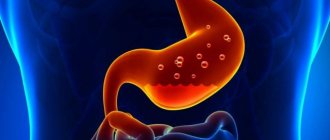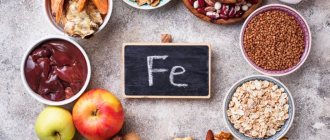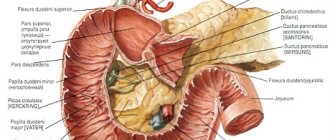The stomach is one of the main organs of the digestive system. Any deficiencies in the diet negatively affect its functioning, changing the activity of the secretory and muscular apparatus, as well as compromising the integrity of the mucous membrane.
The work of the smooth muscles of the stomach and the activity of the secretion of digestive juices directly depend on the type of product eaten. Poor nutrition and the addition of harmful additives disrupt the balanced functioning of all parts of the gastrointestinal tract and manifest themselves in the form of various diseases.
However, there are certain useful products that can improve the condition of the stomach and the entire digestive tract. Below are 7 of the most effective ones.
Ginger
Recent scientific work shows that ginger is effective for correcting a number of dyspeptic disorders (nausea and vomiting, discomfort in the epigastric region), eliminating the symptoms of motion sickness, and also during chemotherapy. The therapeutic effects of ginger are comparable to metoclopramide, a drug used to control vomiting.
Ginger is one of 13 foods that have been proven to improve digestion.
In addition, ginger also has a pronounced anti-inflammatory effect and can be used for inflammatory diseases of the stomach and other parts of the digestive system.
Most often, ginger is consumed in its pure form or tea is brewed based on the root.
Ginger can be used to treat nausea and vomiting instead of toxic medications.
List of vitamins and minerals
- Beta carotene. Accelerates peristalsis in the intestines.
- Vitamin C – has a healing, anti-inflammatory effect, treats ulcers and erosions of the mucous membrane.
- Nicotinic acid – improves digestion.
- Vitamin A – has an anti-infective effect.
- Zinc – promotes protein synthesis.
Meanwhile, foods and dishes made from them are digested for a different number of hours.
Mint
Mint is used to treat subjective unpleasant sensations (nausea, vomiting, feeling of fullness in the stomach) due to the content of powerful analgesic and anti-inflammatory agents in the leaves.
It has been proven that mint helps improve the general condition of patients with irritable bowel syndrome and effectively eliminates symptoms such as bloating, stomach discomfort, and nausea.
How to use mint:
- chew the foliage of a plant;
- sniff mint extract;
- suck candies based on it;
- brew mint tea.
Regular consumption of mint helps to correct disorders of the stomach and other parts of the digestive system, as it contains painkillers and anti-inflammatory agents.
What foods are good to eat?
Nutritionists believe that the foods most necessary for the stomach contain fiber (for example, oatmeal, bran, legumes, cereals). The digestive system takes a long time to digest foods high in fiber, which is beneficial for its functioning.
Fruits contain plant fiber. A large amount of this substance is found in the peel of fruits (for example, apples). One of the “leaders” in fiber content are bananas. If you do not have regular stomach pain, ulcers or gastritis, you should eat fruits raw or make them into light salads dressed with vegetable oil.
Nutritionists say that a sufficient amount of liquid is necessary for the normal functioning of the stomach and body. Try to drink 1.5-2 liters of water per day, drink weak tea and fresh juices more often. This will help avoid digestive disorders and stomach pain.
Fatty, heavy foods are undesirable for the stomach (in addition, their consumption contributes to constipation and increased gas formation). Therefore, it is worth choosing dairy products with a low percentage of fat, replacing the usual pork with chicken, and butter with vegetable oil.
Apple vinegar
The acids contained in apple cider vinegar neutralize the body's absorption of starch. In addition, this remedy helps to normalize the microflora of all parts of the gastrointestinal tract by increasing the number of beneficial bacteria and reducing the population of pathogenic and opportunistic microorganisms.
Against the background of using 1 tbsp. l. apple cider vinegar per day, the risk of developing gastritis associated with Helicobacter pylori drops by 2-3 times.
One scientific study has proven the direct effect of apple cider vinegar against E. coli, Staphylococcus aureus, streptococci and Candida fungi. The effect is realized due to inhibition of protein synthesis in the microbial cell.
Regular addition of this product to the diet helps not only prevent the formation of malignant cells, but also destroy existing ones. Studies were carried out on live rats and in test tubes based on isolated cell cultures.
Apple cider vinegar is an effective remedy for eliminating dyspeptic disorders, preventing dysbiosis and cancer.
Dairy products
It is best to ferment dairy products that are good for the intestines yourself and make yogurt from them (using a special yogurt maker), curdled milk or kefir. You can also purchase such products in a store, but in this case you should pay attention to the expiration date; the product must be fresh, and the storage time itself must be short. This indicator will indicate the absence of preservatives; in addition, the composition should not contain flavors, dyes or other chemicals.
Lactic acid contained in the products described above helps cleanse the intestines of harmful bacteria and putrefactive microorganisms. If you drink kefir and eat cottage cheese every day for a week, your intestinal health will improve significantly. Another product that helps normalize the digestive process is feta cheese. This cheese is not only tasty and healthy, but also well suited for dietary nutrition.
Very often on store shelves you can see yogurt or cottage cheese with some kind of fruit filling, unfortunately, such a product loses its properties. This is due to the fact that fruit acid neutralizes lactic acid.
Probiotics
Probiotics are bacteria beneficial to the intestinal microflora, which are essential for the body to form local immune factors in the digestive tract and adequately digest foods.
Probiotics have a wide range of benefits:
- improved digestion;
- increasing local and general immunity factors;
- improvement of energy metabolism due to the production of large amounts of vitamin B12;
- relief of inflammatory processes of the pancreas, liver and mucous membranes of the gastrointestinal tract;
- reduction of dry skin and hair fragility;
- restoration of the natural intestinal microflora after long-term use of antibacterial drugs;
- weight loss and overall health of the body.
Read more about the benefits of probiotics here →
A lack of probiotics leads to various pathologies of the immune system (including the formation of autoimmune and allergic processes).
Current scientific research shows that probiotics are effective against Helycobacter Pylori. It is this bacterium that is associated with 99% of cases of gastritis and peptic ulcers of the stomach and duodenum.
A sufficient amount of extremely beneficial probiotics is found in natural yogurt, kefir, fermented baked milk, as well as in some types of cheese (Gouda, Mozzarella, Cheddar), in regular cottage cheese and other fermented milk products. 10 more products with probiotics here →
Probiotics are necessary to maintain normal intestinal microflora and prevent inflammatory lesions of the stomach.
The role of fiber
Fiber is an active component consisting of complex carbohydrates that have a beneficial effect on the bile ducts, intestines, and liver. It is fiber that begins as it enters the body:
- quickly fill the stomach, giving a feeling of fullness;
- improve motility of the liver and colon;
- adjust the chair;
- remove decomposition products naturally;
- stimulate the cleansing of the intestines from accumulated toxic components.
A large amount of fiber is found in vegetables (cabbage, carrots, beets, pumpkin), fruits (apples, pears, plums, prunes, dried fruits, bananas), bran and rye bread.
Reference! If you do not follow the basic principles of nutrition, then even foods that are healthy for the body can become harmful and have a negative effect on the intestines. You cannot overload your body with food and overeat. It is better to make meals in fractions, taking up to 7 small portions per day at equal intervals.
High Protein Foods
Normally, hydrochloric acid is secreted by the parietal cells of the stomach. It breaks down a number of proteins and provides primary antiseptic processing of food, preventing the entry of various pathological agents into the lower parts of the gastrointestinal tract.
Unfortunately, a situation very often develops in which hydrochloric acid is produced in excess volumes, which leads to damage and irritation of the gastric mucosa. This circumstance is one of the leading risk factors for inflammatory and ulcerative pathologies.
According to scientists, foods that contain large amounts of protein help neutralize hydrochloric acid and eliminate a number of symptoms (a feeling of rapid filling of the stomach, nausea and vomiting, heartburn).
Thus, food with a high percentage of proteins is indispensable for the treatment and prevention of hyperacid gastritis.
Top 10 products for stabilizing intestinal functions and the gastrointestinal tract
The following foods will help restore the microflora and natural rhythm of the intestines, promote regular emptying and release the cavity from accumulated poisons (toxins), and also improve overall well-being:
- Cereals, bran (oatmeal) with the addition of pieces of fruit, providing a feeling of fullness.
- Whole grain coarse bread is an invaluable source of vitamins, microelements, and fiber. Low-calorie varieties with a lot of dietary fiber in their composition will bring benefits. To normalize digestion, you can include in a therapeutic mono-diet, for example, rye bread up to 3 pieces per day.
- Avocado is a real source of valuable fiber, containing up to 12 g of fiber per fruit. The fruit enhances intestinal motility, prevents constipation, and normalizes microflora.
- Berry (gooseberries, strawberries, raspberries) with a high fiber content (%) and a low amount of calories.
- Lentils are an ecological product containing zinc and iron.
- Legumes are a great help when developing a diet. The main thing is not to overeat, avoiding gas formation and bloating.
- Pears contain up to 6 g of fiber per fruit and fructose, which is essential for normalizing the functioning of the pancreas.
- Nuts (pistachios, almonds). Almonds are considered the most nutritious, containing nutritious ingredients in large quantities. But there are more benefits in pistachios, which lower cholesterol levels and increase the elasticity of vascular arteries. It is recommended to add nuts to sauces, baked goods, and yoghurts.
- Dried fruits (prunes, apricots, raisins, figs) improve intestinal activity and stimulate digestion. Although you should not neglect the doses. Dried fruits are quite a high-calorie product.
- Flax seed contains slightly soluble, insoluble fiber. This is an excellent laxative, an enveloping agent for the stomach, which begins to secrete mucus to protect the esophagus from irritation and remove undigested food particles, which is extremely important for excess weight, constipation, gastritis, and stomach ulcers.
- Green vegetables (beets, turnips, spinach leaves) containing up to 5 g of insoluble fiber, a high concentration of beta-carotene, and iron. It is recommended to include savoy cabbage, radish, broccoli, green bell pepper, cauliflower, and black radish in your diet to reduce blood cholesterol.
Photo: healthy foods for bowel function
Fish
Regular consumption of fish (herring, cod, pink salmon, salmon) is beneficial for people suffering from chronic gastritis, colitis and other stomach pathologies.
It is known that fish contains a significant amount of proteins, essential amino acids, vitamins and minerals, which participate in the formation of normal microflora of the digestive tract and prevent the development of infectious and inflammatory pathologies.
In addition, seafood is easily digestible and dietary food.
Also, omega-3 fatty acids in fish prevent a number of abnormalities of the heart and blood vessels (including atherosclerosis).
Fish is necessary to saturate the human body with essential nutrients and prevent a number of chronic stomach diseases.
Major stomach diseases
Stomach pathologies differ in pathogenetic and clinical-morphological manifestations. These include:
- gastritis, including atrophic;
- gastroduodenitis;
- gastroenteritis;
- gastroparesis;
- dyspepsia;
- pylorospasm;
- pyloric stenosis;
- polyps;
- ulcer;
- cancer.
diseases of the stomach and intestines are distinguished by clinical, morphological and pathogenic manifestations
Diseases can be caused by:
- Helicobacter pylori;
- food allergens;
- intoxication: alcohol, heavy metals;
- power supply errors;
- infectious diseases: viral hepatitis, typhoid fever, dysentery;
- metabolic disorders;
- neurogenic and hereditary factors;
- bad habits, etc.
When treating the digestive system, it is necessary to influence not only the cause of the disease (its pathogenetic processes, symptoms), but also to adjust the level of secretion of enzymes and digestive juices, eliminate metabolic dysfunctions, and activate restoration and reparative processes.
The difficulty of treating stomach diseases is that adjacent organs of the gastrointestinal tract and hepatobiliary system are involved in the pathological process. Stomach dysfunction leads to the following diseases:
- biliary dyskinesia;
- cholecystitis and cholangitis;
- cholelithiasis;
- hepatitis;
- pancreatitis;
- liver cirrhosis;
- dumping syndrome;
- intestinal infarction;
- reflux disease, etc.
The drugs used in the therapeutic regimen must have multidirectional effects. Medicinal herbs fully meet the goals of therapy, since each plant has several properties.
medicinal herbs for the gastrointestinal tract are used to treat diseases beyond exacerbations and remissions
Fresh apples
Apples contain many vitamins (C, B1, B2, B6, E, P), macro- and microelements (calcium, potassium, iron, magnesium, phosphorus, boron, iodine, copper, chromium, nickel, zinc), organic acids , pectins and sugars.
It has been proven that apples normalize the motor-evacuation function of the stomach, increase the viability of the sphincter apparatus, and effectively prevent the development of constipation. The action is ensured by oxalic acid and pectins, which irritate the receptors of the mucous membrane and stimulate peristalsis.
No less important is the enveloping effect, which reduces the absorption of sugars (especially important in pathologies of the glycemic background and obesity) and increases the resistance of the inner lining of the stomach to harmful factors (hydrochloric acid, pepsin, bacteria).
It is recommended to eat at least 1-2 apples per day. Apples can be eaten both in the morning for breakfast and at night as a last meal.
Fresh apples are needed for adequate and balanced functioning of not only the stomach, but also the entire digestive tract.
General information
The stomach is a hollow muscular sac. This is the main organ of the digestive system. From above it connects to the esophagus, through which food enters the stomach, and from below to the duodenum. The inner surface of the stomach is complex, consisting of several membranes:
- muscular;
- mucous membrane and others.
There are upper and lower sphincters. The upper sphincter prevents food from getting back into the esophagus, and the lower sphincter prevents undigested particles from slipping into the small intestine. Such a complex structure of the stomach is not without reason. After all, the main active ingredient is hydrochloric acid.
Interestingly, food is digested not only by chemical solutions. The stomach actually contracts and grinds the chewed mass through physical forces, so it is attached only from above and below, and the main body can move. But how to eat properly, with what frequency, and in what quantity, so as not to disrupt such a delicate functioning of the organ?
What to avoid
There are a large number of harmful and heavy foods, the frequent consumption of which disrupts not only the functioning of the stomach, but also all parts of the digestive system, and also negatively affects the health of the body as a whole.
Below are the most dangerous products that you should avoid:
- Hot peppers. Promotes irritation of the mucous membrane of the esophagus, stomach and duodenum. With increased acidity of gastric juice, abuse of acute gastritis can lead to dyspeptic disorders (nausea, heartburn, feeling of rapid filling, epigastric pain), as well as provoke the development of acute gastritis or exacerbation of chronic gastritis.
- Alcohol. Causes “relaxation” of the central nervous system, therefore, the regulatory function of the brain decreases. This leads to incompetence of the esophageal and antral sphincters. Against the background of regular reflux of stomach contents into the esophagus and bile from the duodenum, heartburn, chemical gastritis and even malignant formations develop.
- Fried food. We contain a lot of fats that are extremely difficult to digest. Ultimately, this leads to a slowdown in the motility of all parts of the digestive system, the formation of constipation, and activation of fermentation processes. Also, frying in oil produces a significant amount of toxins, which reduce immunity and increase the risk of cancer.
- Smoked meats. Many studies have shown a direct connection between this category of products and the frequency of development and exacerbation of chronic diseases (gastritis, duodenitis, peptic ulcer).
- Carbonated drinks. They irritate the gastric mucosa (even to the point of reactive gastritis), increase the absorption of nutrients along with various toxic metabolites, which should normally be neutralized and excreted from the body.
- Instant noodles. It contains a lot of harmful substances (a lot of sodium, a lot of fat), but the main problem for the stomach is an almost complete stop of motor activity for some time (from 45 minutes to 2-3 hours). The noodles quickly occupy the entire free volume of the stomach and linger there for primary digestion, at which time the gastro-duodenal sphincter opens and bile reflux occurs. In the future, this leads to the formation of gastritis and various pathologies of evacuation of stomach contents.
Of course, the list of harmful products is much wider, but the most dangerous components are described above. To maintain a healthy stomach, you should consume more natural, unprocessed substances.
Enveloping products for high acidity
If acidity is high, a sick stomach needs dishes that envelop and soothe the mucous membrane. Porridges made from semolina, pearl barley, rice, and oatmeal are quite good. Soup with the addition of these cereals envelops the mucous membrane. Light, enveloping food should be the basis of the diet.
It is worth refraining from eating fruits and vegetables containing large amounts of fiber . Vegetables with high acidity include cauliflower, potatoes, carrots, rutabaga, and beets. During periods when you feel good, you can diversify your diet with cabbage, sorrel, radish, and herbs. Eating lemons, grapes, persimmons, melons, and peaches is undesirable for a sick stomach (as is the case with low acidity).
Who needs to eat right
The stomach begins to hurt after regularly eating spicy, salty and fried foods. Alcohol, some medications and supplements damage the delicate epithelial layer, and then the following symptoms begin to appear:
- Heartburn;
- Heaviness;
- Nausea;
- Bloating.
All this indicates that the organ cannot perform its functions correctly, its surface is damaged, which means ulcers can form that do not have time to heal due to constant exposure to caustic food. Over time, chronic inflammation appears, which in turn can lead to more serious consequences, such as cancer.
Therefore, it is very important to know which foods are good for the stomach, envelop its walls and do not destroy them, and are also well absorbed without affecting the general condition. After all, poorly processed food is not absorbed by the body, we do not receive enough necessary substances and, on the contrary, accumulate unnecessary ones. This leads to problems with excess weight, blood pressure, high blood sugar and many others.
For some people, food replaces familiar pleasures. It is a hobby, entertainment and adventure at the same time. Hundreds of thousands of people around the world are addicted to fast food, as if on a drug. Sugar, monosodium glutamate, beer - all these goodies are very harmful to health.
For girls, the motivation to choose food that is easy on the stomach is their figure. You can stay slim only by eating right. For young people, the motivation is to gain muscle mass, to pump up muscles. This is impossible without careful attention to your own nutrition. Therefore, the younger generation is increasingly aware of their taste preferences and focuses on food that is easy on the stomach.
Another undeniable advantage of such food is that it costs much less than fast food. Eating food that is easy on the stomach is not only healthy, but it can also save you enough money for an annual trip abroad. Often this factor is decisive in a person’s choice of diet.
Meat and offal: harm or benefit
What food is the easiest for the stomach? This is dietary meat. Among people without medical education there are unfounded rumors about the dangers of meat and offal. In fact, vegetarianism and veganism can benefit very few people in our country. You need to eat meat for endurance, the ability to resist cold, and build muscle mass.
Turkey and chicken fillets are digested very quickly (if they have been stewed). Of course, you shouldn't fry it. But stewing with vegetables and herbs is a great idea! This simple and satisfying dish can be consumed both after poisoning, during the recovery period after surgery, or simply for weight loss.
Folk recipes
You can cope with the symptoms of heartburn, ulcers and other pathologies of the digestive tract using traditional methods. Flax seeds, starch, oatmeal, and marshmallow root will help protect the mucous membrane. The most popular drink is one made from potato starch. By the way, many pharmaceutical enveloping agents for the intestines and stomach contain this component in their composition. Making the drink is quite simple. It is enough to dilute a tablespoon of starch in 100 ml of warm water and drink the resulting mixture.
The mucus secreted by flax seeds has a pronounced enveloping effect. They can be used both for the treatment and prevention of diseases of the digestive system. To do this, pour boiling water (1 cup) over flax seeds (1 tsp) and wait 15-20 minutes. After a while, the mixture will swell and become like jelly. The resulting mass must be filtered and the solution taken warm an hour before meals.
Traditional medicine offers quite effective enveloping agents to combat intestinal and stomach diseases. According to patient reviews, unconventional methods of treating these ailments help relieve pain and normalize digestion.
For heartburn, nausea, or stomach discomfort, people often use antacids. Patients with diseases of the digestive system also need them. The drugs coat the stomach, protecting it. You can purchase them without a prescription from a doctor. The choice of products is quite wide; read our detailed review.
Food should be chewed slowly
Haste accompanies us every step of the day.
Eat more slowly, tasting the food you eat, and after eating, do not make sudden movements for 15-20 minutes, allowing the stomach to properly digest its contents.
Food should be chewed slowly
Professor Kenneth Koch from Wake Forrest University in the US believes that stress can affect any part of our digestive system. This can cause inflammation and make the digestive system more susceptible to infections. Additionally, stress can cause overproduction of digestive enzymes and lead to indigestion.
One of the methods he recommends is physical activity. This affects not only the health of the body, but also the production of endorphin - the hormone of joy and pleasure. Severe stress causes the body to release adrenaline and this causes more digestive acids. Therefore, when we are under stress, we may feel a burning sensation in the stomach or heartburn.
List of desserts that are easy on the stomach
People who are losing weight and gastroenterologist patients often have the mistaken opinion that they will never try anything sweet or tasty again. It's a delusion. Here is a list of healthy desserts:
- Recipes for fruit and berry smoothies (two of them were described above) can perfectly replace any dessert. Flavorful and easy on the stomach, the food is a thick liquid. To prepare a smoothie you will need a blender, five minutes of free time and imagination.
- A green apple baked in the oven with cinnamon has a refined, slightly sour taste. It is perfectly absorbed, saturates the body with iron, and does not cause pain during gastritis.
- Low-fat cottage cheese with berries - you can simply mix with a spoon, or you can crush in a blender until smooth. The resulting berry-curd soufflé can replace both breakfast and dinner. It pleases with its wonderful aroma, sweet taste and at the same time minimal calorie content and high digestibility.
Source: fb.ru
What is a smoothie and why has it conquered the whole world?
After poisoning, intoxication, people with gastrointestinal diseases, and girls losing weight, all nutritionists strongly recommend eating smoothies. Here are two popular recipes for easy food for the stomach:
- Take one ripe banana and a handful of any berries (you can do without them), put them in a blender, add a glass of low-fat kefir, grind until smooth - your banana smoothie is ready.
- Take 100 grams of ripe strawberries, 50 grams of ice cream, 150 ml of low-fat kefir, blend everything in a blender - the creamy strawberry smoothie is ready.
These recipes are ideal as dessert. This is an easy food for the stomach at night, which is easily digestible and does not cause pain or the accumulation of excess fat.










